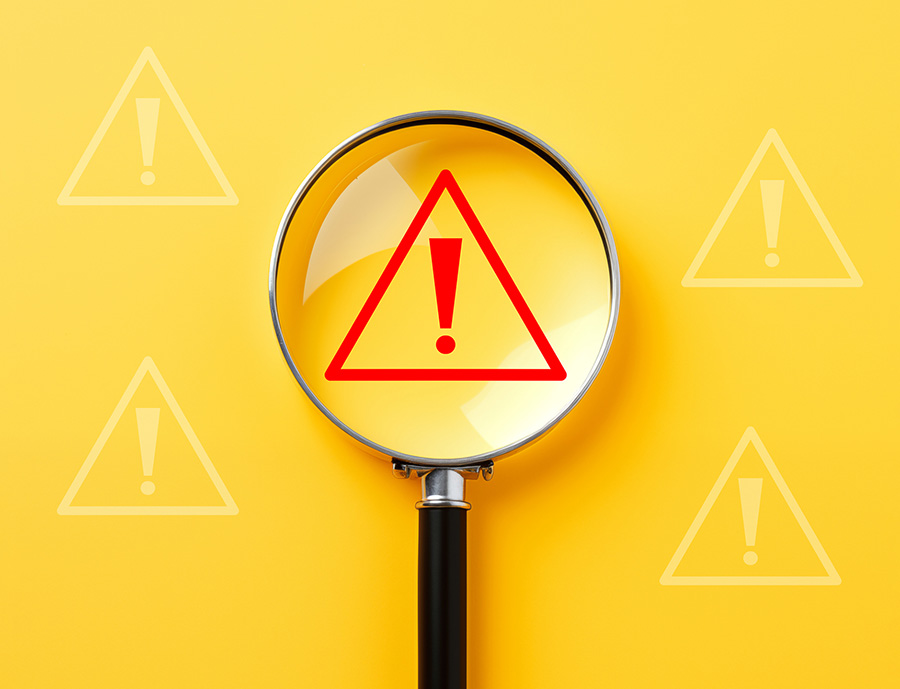Table of Contents
October is Cyber Security Awareness Month, and for those in the HVAC and building services sector, it’s a timely reminder that digital threats don’t just target big tech firms. Contractors, engineers, and service providers who manage sensitive data and financial transactions daily are just as much targets as any other business.
This year our campaign focuses on four key habits that help keep your business secure:
- Spotting and reporting scams
- Using strong passwords and password managers
- Enabling multi-factor authentication (MFA)
- Keeping software and systems up to date
Let’s start with the first: recognising and reporting scams. It’s not just about protecting your inbox, it’s about safeguarding your contracts, your clients, and your reputation.
Why HVAC Businesses Are Being Targeted
Scammers have become more sophisticated. They’re no longer sending clunky emails with obvious spelling mistakes. Instead, they’re using artificial intelligence to mimic voices, impersonate suppliers, and create convincing fake documents.
In the HVAC world, this might look like a fraudulent invoice from a known subcontractor, a spoofed email from a manufacturer, or a fake job request that appears to come from a regular client. The goal is always the same – to trick you into transferring money or sharing sensitive information.
And with more teams working remotely or across multiple sites, it’s easier than ever for scammers to slip through unnoticed.
Warning Signs You Shouldn’t Ignore
Even as scams evolve, the red flags remain familiar. Here’s what to watch for:
- Urgent requests: Messages that pressure you to act immediately or face consequences.
- Unusual asks for sensitive data: No genuine supplier or client will ask for passwords or bank details via email or text.
- Suspicious links or attachments: Always hover over links before clicking. If something looks off, it probably is.
- Offers that seem too good to be true: Free tools, guaranteed returns, or mystery rebates? Be sceptical.
Scams Common in Building Services
Here are a few scams that HVAC professionals are likely to encounter:
- Phishing and smishing: Emails or texts pretending to be from your bank, HMRC, or delivery services.
- QR code scams: Fraudulent codes placed in public areas that redirect to fake websites.
- Social media impersonation: Fraudsters posing as colleagues or clients asking for urgent payments.
- Tech support scams: Pop-ups or calls claiming your system is compromised, urging you to give remote access or pay for a fix.
These scams are designed to exploit trust and urgency, two things that are common in fast-paced contracting environments.
What to Do If You Spot a Scam
Recognising a scam is step one. Reporting it is just as important. Here’s where to start:
- Your bank or card provider: For anything involving payments or suspicious charges.
- Your mobile provider: Most networks allow you to report scam texts and calls.
- Your IT or security team: Flag anything unusual so they can investigate and block threats.
- Your team and partners: Let others know if you’ve spotted a scam. It could save them from falling for it.
- Local authorities: Especially for identity theft or scams targeting vulnerable individuals or businesses.
Why Reporting Helps Everyone
Every report strengthens the industry’s defence. When you flag a dodgy email or suspicious message, you’re not just protecting your own business, you’re helping others avoid the same trap. Silence is what scammers rely on. Sharing what you see helps break that cycle.
Staying Secure in a Connected Industry
HVAC businesses rely on digital tools more than ever. From remote monitoring systems to cloud-based project management. That means cyber security isn’t just an IT issue. It’s a business-critical priority.
Here’s how to stay sharp:
- Be cautious with sensitive requests.
- Double-check unexpected messages, even if they seem familiar.
- Report anything suspicious, quickly.
Whether you’re managing installations, servicing contracts, or coordinating with suppliers, scam awareness should be part of your daily routine.
Final Thought
Cyber Security Awareness Month is a great opportunity to review your digital habits. Recognising scams early and reporting them promptly helps protect your business, your clients, and your team.
Need help building a scam-proof strategy for your HVAC business? Let’s talk. We’re here to support you.



